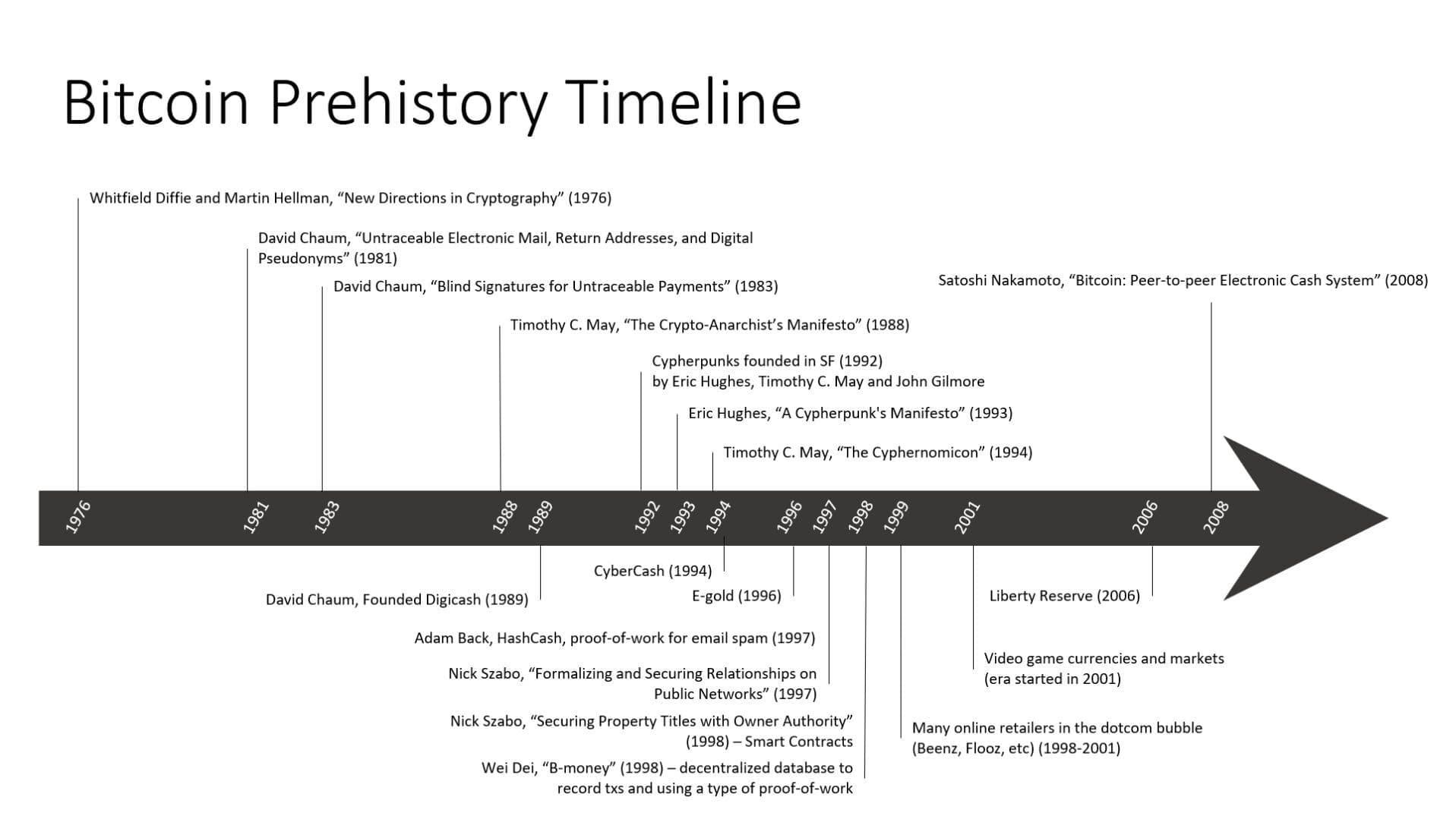This is the third part of “Bitcoin: The Misunderstood” a series of articles that debunk popular myths about Bitcoin.
Bitcoin is sometimes referred to as the elder of “cryptocurrencies”. Some say that it was the first cryptocurrency, I would tell you that Bitcoin is neither more nor less than the latest cryptocurrency. This does not mean that Bitcoin is obsolete by any means. Quite the contrary.

Years of research and experimentation led to the development and publication of Bitcoin in 2008. Bitcoin was inspired by many digital currency projects that were often halted due to their dependence on an individual or a company. Several projects have enabled other developers to better understand the workings of digital currencies. To persist autonomously without the backing of a government, a digital currency must first and foremost be completely distributed. Indeed, Bitcoin's technology is not groundbreaking. On the contrary, the prehistory of Bitcoin shows us that there have been dozens of attempts to design digital currencies since the 1960s and the dawn of the internet. Digicash, Hashcash, B-money, Bit Gold, E-gold, and Liberty Reserve have all contributed to the foundation that allowed Bitcoin to emerge as the latest cryptocurrency to establish itself in a lasting way. Why Bitcoin and not its predecessors, nor its successors?
Bitcoin is an absolutely distributed currency because no one is responsible for managing its monetary policy. However, anyone can verify the number of bitcoins in circulation and ensure that there is no inflation. Bitcoin is the only distributed currency that exists today. This is what allows it to continue to endure over time and what makes its network increasingly robust. Bitcoin does not use any revolutionary technology. In fact, Bitcoin is rather boring if one examines the components of its network. Even the famous “blockchain” is not so innovative in its design, although many would tell you otherwise. The majority of people will simply repeat what the media says without investigating the topic too deeply. Without going into technical details, Bitcoin uses pieces of technology that have mostly been around for decades. Hashing (1958), distributed systems (1969), public key cryptography (1976), elliptic curve cryptography (1985), and more recently the reuse of proof of work (R-POW in 2004) were all invented well before Bitcoin. What makes Bitcoin new is the alloying of all these technologies together to create a whole.
But then, can other more modern cryptocurrencies dethrone Bitcoin with newer, more innovative technologies?
All other cryptocurrencies are more or less decentralized, and tend to centralize over time due to political uncertainties surrounding their networks. This is not the case with Bitcoin. Nobody controls Bitcoin. Ignoring the past that led to the invention, or even the discovery of Bitcoin, can only lead to the mistake of thinking that Bitcoin is an obsolete senior among cryptocurrencies, making way for a new, more efficient cryptocurrency. On the contrary, Bitcoin has withstood the test of time, especially during the years when the network was most vulnerable. Exposure to computer bugs, attempts at censorship by banks and governments worried about a new currency beyond their control... Bitcoin, like those good old Gauls, still resists the invader. The longer it endures, the more likely it is to continue to shine in the years to come. It is important to understand the framework within which Bitcoin operates: that of a monetary evolution, not a technological revolution. Bitcoin is a new option for savings, exchange, and unit of account. This project must be distributed without any single point of failure. No developer, investor, politician, or company can control it, unlike other cryptocurrencies that are heavily influenced by their developers or investors. Even if some cryptocurrencies seem to have more innovative technologies, faster transactions, or more ecological consensus mechanisms, these distinctions are futile and irrelevant in the long term.
Like a fine wine that matures over the years, Bitcoin slowly refines itself over time. It seems that Bitcoin has an undeniable advantage over other projects that try hard to replicate its development: it is very plainly simple. The rules of the Bitcoin protocol remain unchanged, and that's a good thing. Other cryptocurrencies that rapidly experiment with more advanced features are at best a research laboratory for Bitcoin. The Bitcoin network will be able to integrate these improvements if it is agreed that they are necessary for its evolution. In the meantime, Bitcoin solidifies a little more every day and continues to offer its users protection against monetary inflation, as well as a guarantee of resistance to censorship of payments. Other cryptocurrencies continue, as best they can, to renew themselves technically and in the speeches their promoters offer to their users: dreams and promises that only commit those who believe in them and encourage short-term speculation, while Bitcoin invites responsible long-term saving.





